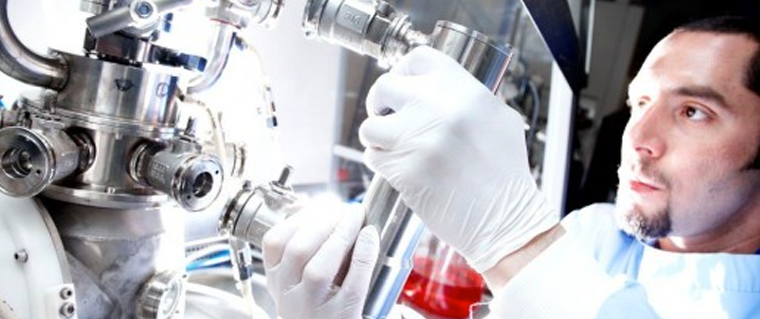
Case Study
Embedding a culture of innovation: Dan’s story
Date: June 11, 2013
2013 saw the first cohort of 12 postdoctoral researchers awarded the Postgraduate Certificate in Professional Innovation, a formal qualification designed to foster a continuous critical awareness of the challenges and opportunities on innovation management.
The Certificate was developed with support from colleagues Innovation and Impact Group (IIG) at Leeds University Business School.
After completing his PhD in Molecular and Cellular Biology at Leeds, Daniel Thomas, 34, took up a post doc position with Professor Eileen Ingham in the Institute of Medical and Biological Engineering, before securing a full-time position as her laboratory’s manager.
“My role involves overseeing the running of the lab on a day to day basis, managing the technical staff, looking after health and safety, purchasing providing technical and scientific support, amongst other things” he says. “Essentially, I make sure that Professor Ingham’s lab runs as smoothly as possible.”
Daniel heard about the Postgraduate Certificate from a postdoc colleague and thought it would be a useful addition to his skills, given the highly commercial nature of the laboratory’s research.
“I don’t do much research myself anymore,” he says, “but I do help other people with theirs. This means I have a good overview of all the research going on and have input into many projects, and I get a lot of satisfaction from that. The Certificate has helped me give a further dimension of support to the researchers – by helping to improve innovation in the lab too”.
Professor Ingham agreed, and when Daniel was accepted into the first cohort she ensured he was given the flexibility to fit his lectures around his full-time role, with Daniel putting in extra hours at home.
“I chose a portfolio project that was relevant to the work of the lab – scaling up of the decellularisation process. This involved looking at all manner of different aspects, from the process itself, to manufacturing considerations and regulatory hurdles. It was hard to get my head around the social science concepts and literature at first, but the different management and innovation techniques were interesting and really useful, as were the specific areas such as intellectual property and product design.
“I have a broader understanding of innovation now and can contribute more effectively to the aims and needs of the lab. It’s definitely given me food for thought and ideas to work on in my current role, and increased my network of colleagues across the campus. Plus I have a qualification that bridges academia and industry, which is a great addition to my CV.”
Back to Case Studies
